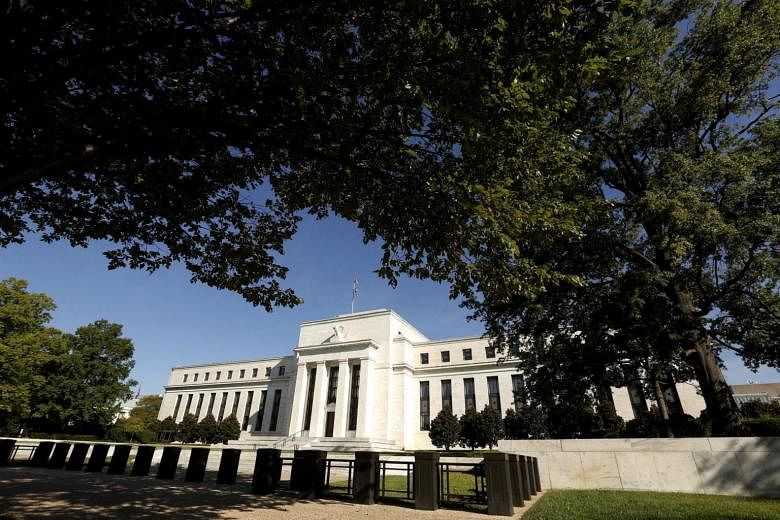HONG KONG (BLOOMBERG) - Investors are betting on the fastest pace of interest-rate hikes since 2010 across the world's biggest developed markets, pressuring policymakers who want to slow inflation without crash landing their economies.
That's the backdrop to this week's meetings of central bank chiefs and finance ministers from the Group of 20 (G-20) nations, who hold virtual and in-person discussions in Jakarta on Thursday (Feb 17) and Friday, their first gathering of the year.
It's a remarkable turnaround from when they last met in October, a period when Federal Reserve chair Jerome Powell was still describing inflation as "transitory" and markets were pricing in at most two Fed rate increases this year.
Now, six Fed hikes are priced in. And across G-10 economies, swaps futures show traders expect the average central bank rate to be 1 percentage point higher in a year, the steepest projected pace of tightening since January 2010, according to Bloomberg calculations.
This pivot leaves officials struggling to manage expectations amid slowing growth, threats of war, surging oil prices and a pandemic that is now into its third year.
The People's Bank of China governor Yi Gang on Wednesday cautioned that emerging markets, already hit hard by the pandemic, are vulnerable to tightening financial conditions.
"Central banks from advanced economies should continue to enhance market communication," Mr Yi told a virtual panel during a G-20 side event. "Meanwhile, emerging markets should improve their resilience. This is where regional financial cooperation has a key role to play."
San Francisco Federal Reserve president Mary Daly told CBS on Sunday that it is paramount for the central bank to be measured and data-dependent as it starts lifting interest rates to ensure stability after US inflation hit its highest since 1982.
European Central Bank (ECB) president Christine Lagarde has warned that a rushed tightening would harm the euro-area's rebound from the pandemic. The Bank of England has lifted rates twice in recent months, but Governor Andrew Bailey has cautioned the outlook is clouded by uncertainty.
In Japan, where inflation remains largely dormant, the central bank undertook an unlimited bond purchase operation in recent days to anchor yields and push back against traders testing its super easy policy mix.
And China's central bank on Tuesday stepped up support for its slowing economy by pumping in cash via policy loans for a second straight month. Other emerging economies, including Brazil and Russia, have been aggressively raising rates.
Meanwhile, some market strategists are even touting "currency wars in reverse" as governments prefer stronger exchange rates to ward off imported inflation.
Taken together, it's clear the global policy outlook is far from uniform - a challenge for finance ministers and central bank chiefs tasked with pulling together a communique of shared goals at this week's meeting.
For those markets where higher rates are forecast, pricing also shows that conditions could change as borrowing costs climb.
Investors last week even started pricing in better-than-even odds that the Fed will cut rates in 2024.
History shows why policymakers are on edge to avoid policy errors.
In February 2010, Group of Seven finance ministers and central bankers meeting in Canada agreed it was time to "look ahead to exit strategies and move to a more sustainable fiscal track", while recognising the need to continue stimulus. The ECB raised rates the next year, citing inflation pressures, only to be swamped by the eurozone crisis.
On the other hand, delaying a response to rising prices could leave officials needing to stamp down even harder later, forcing economies into recessions.
And inflation is not the only risk.
Tensions over Russia's military build-up near Ukraine, with the US warning an invasion may be imminent, have sent oil prices to seven-year highs. The coronavirus continues to compound supply chain snags that stoked inflation.
These pressures make the G-20 agenda this week very different to the years that followed the financial crisis and the pandemic, when fears of weak growth dominated discussions.
"There's always more uncertainties around hiking cycles," said Ms Sally Auld, chief investment officer at JBWere, the private wealth arm of National Australia Bank. "You just don't know how the economy is going to react."

